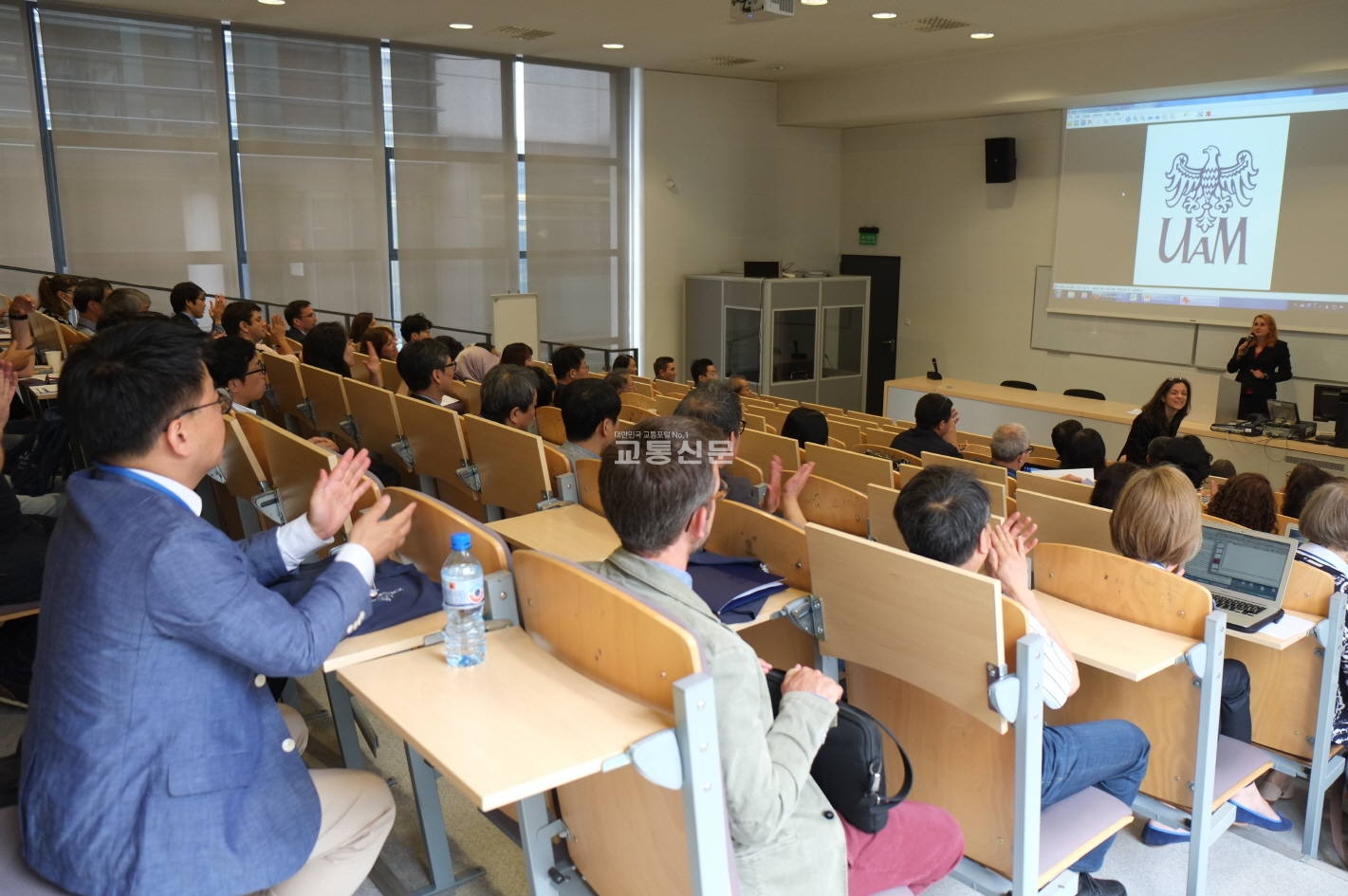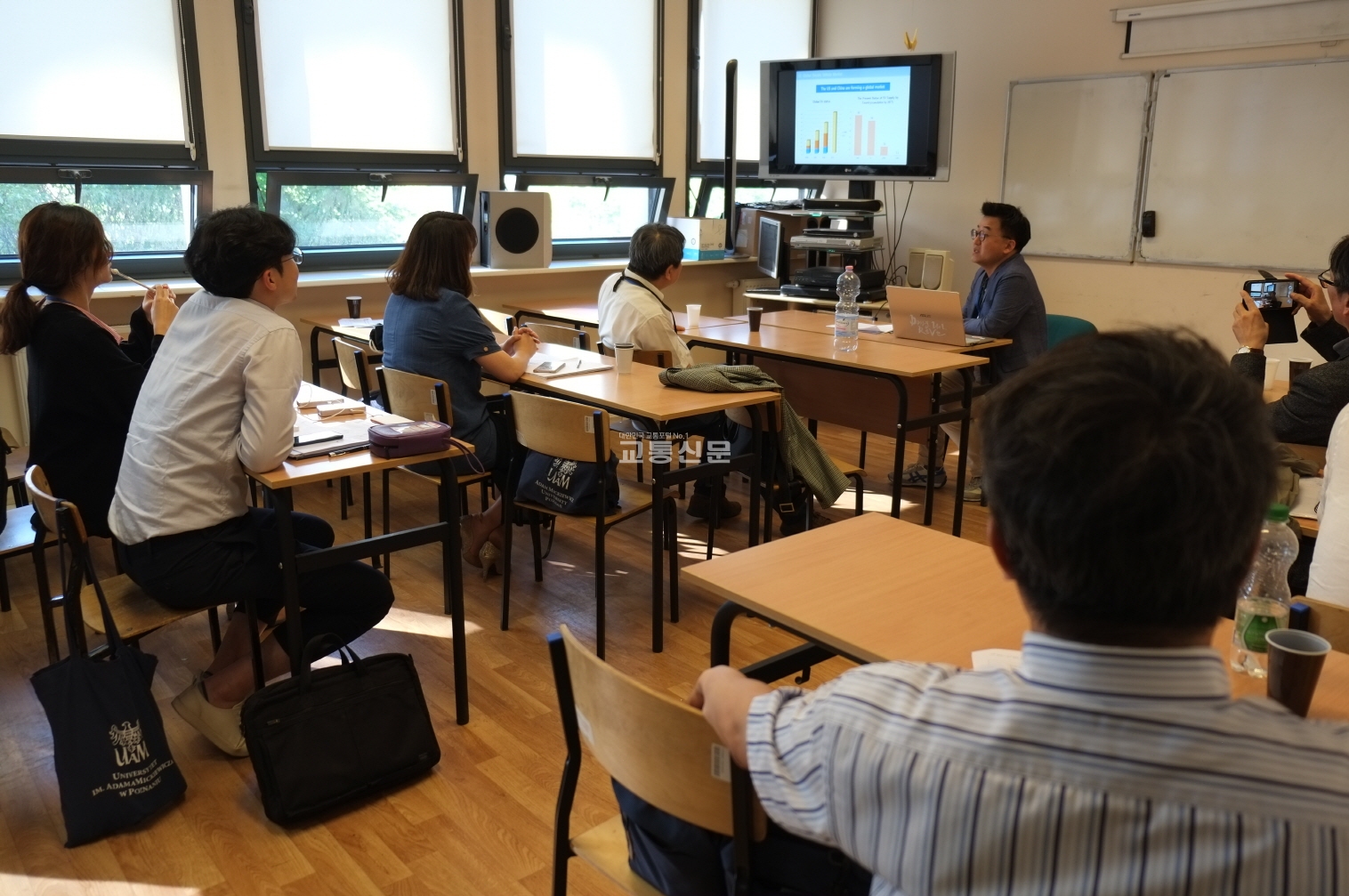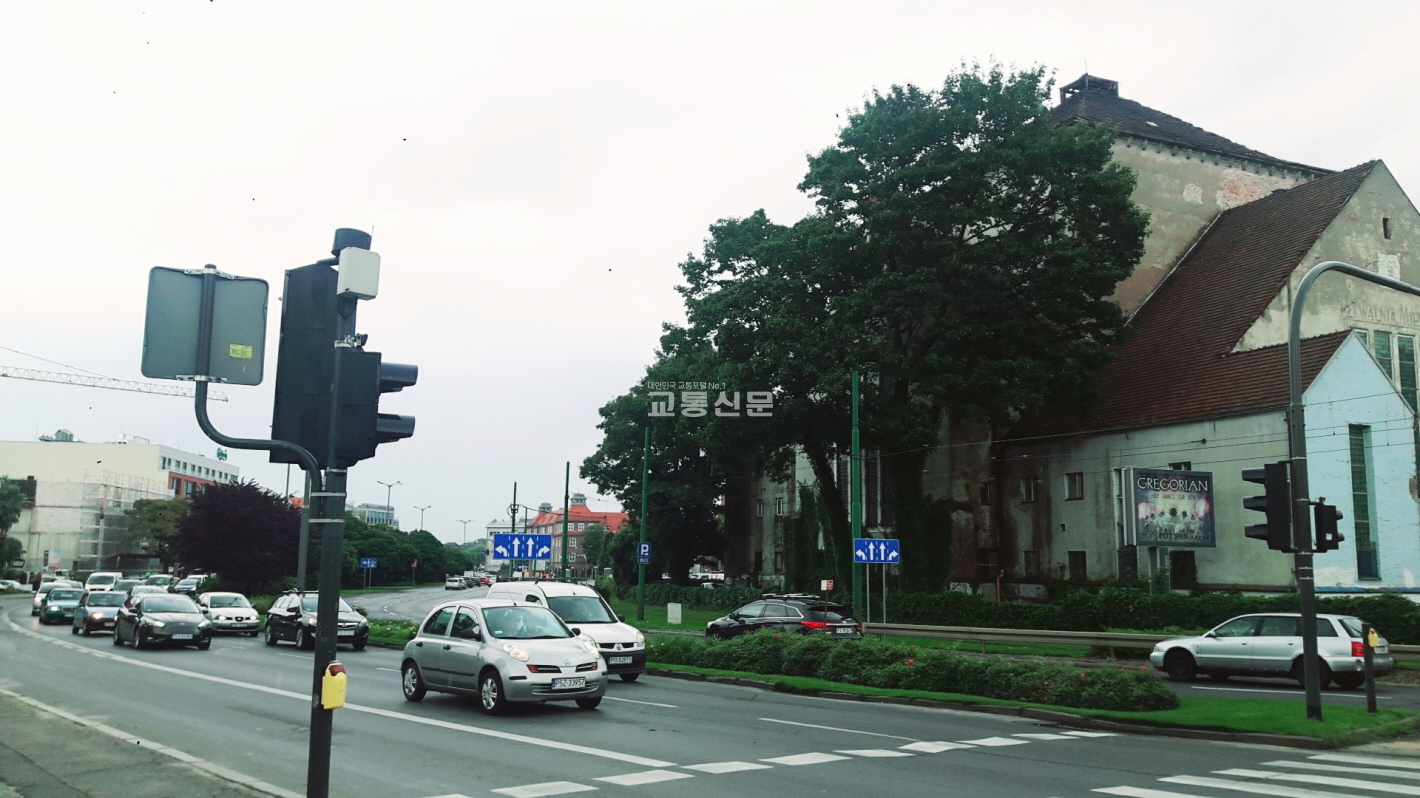
[Poznan=Seung-han LEE] On the 14th of last month, the theme presentation of the 1st Asian Congress was held at Adam Mickiewicz University(Poznan, Poland). A Polish audience asked the speaker on the podium with a serious expression.
“It is reasonable to say that the Polish auto industry has actually fallen into a subcontracting base for multinational corporations. If we cooperate with a globally recognized Korean company, we can eventually create another subcontracting production structure. What can Poland gain from cooperation with Korea?”
“We know the current status of the Polish auto industry, so cooperation between Korea and Poland should be directed toward the way small and medium-sized enterprises participate, not large companies. I think that this is more reasonable and mutually beneficial. As large companies, Korean SMEs(small and medium-sized companies) have many global competitiveness in terms of technology. I am sure that if Poland can work with them, both sides will have the opportunity to win-win.” The presenter answered.
Korea, the world's sixth largest automaker, has set up a forum to explore the possibility of cooperating with Poland, which has the largest market in Middle East Europe. From the 13th to the 15th of last month, the 1st Asian Congress was held at Adam Mickiewicz University(Poznan), In the meantime, Possibility of Collaboration between Korea and Poland in the Automobile Industry were presentations and discussions at the 6th International Conference on Korean Humanities and Social Science which as main session in Asian Congress.
The theme of this conference is ‘Changes in Korean Auto Industry-Government Strategy for Eco-friendly Vehicles and Market Trends’. The announcement covered the global automobile industry and market trends, including Korea, which included a prospect for the future, especially in the recently popular eco-friendly cars. In addition, the current status of the Polish automobile industry and the cooperation plan and possibility with Korea were introduced.
According to the announcement, Poland has a very large potential for growth in the automobile market. By 2016, Poland's territory(310,000㎢) and population(38.1 million) are second only to Russia in Middle East Europe. The gross domestic product(GDP) is also ranked 22nd in the world with 614.2 billion dollars, and the automobile industry is also growing in size with this background on its back.
In 2016, Poland's automobile production(based on finished cars) is 676,642 units, ranking 19th in the world, with 554,148 cars and 122,194 commercial vehicles. In Middle Eastern Europe, Poland is followed by the Czech Republic(1.35 million units), Russia(1.3 million units), and Slovakia(1.44 million units). It has increased by 3.1% from the previous year. It has been rising for 2015 and 2016 consecutive year after drawing a downward curve until 2014 after peaking in 2008 (101,000 units). Domestic sales rose 16.7% year-on-year to 504,550 units. Since the 2000s, production has been stagnating at between 300,000 and 400,000 units, and has been on the rise since 2013. The market is the 22nd largest in the world.
The automobile industry, including parts, accounts for 8 percent of total Polish GDP, or 13 percent of total exports. and 10 percent of the total industrial population is in the automobile industry. It is the second largest food industry in Poland.

The Polish automobile industry is currently serving as a base for advances in Western Europe, with 85 percent of the total volume being exported to the EU, with Germany accounting for 30.2 percent. In particular, commercial vehicle exports are the mainstay, the third bus producer in the EU. In Poland, global brands dominate production and most of the market. Fiat(256,980 units), Opel(201,357 units) and Volkswagen(95,811 units) are in charge of the entire production of passenger cars. and Volkswagen(89,994 units), Fiat(16,500 units) and Man(15,700 units) make up the nation's overall production.
Poland was originally a country with a weak automobile industry base, and since the 1990s, the government has been actively pursuing investment, and the industry has gradually become more and more framed. It has a great geographical advantage, especially because it connects Western Europe, Russia and Ukraine. and The automobile industry factories in Germany, Czechoslovakia and Slovakia are close to Poland, and Poland is also attracting attention from global companies in the EU due to the development of railway traffic.
Despite these conditions, the Polish automobile industry is still below expectations. The market can also expect a maximum of 1.0~1.3 million units per year considering the population, but the reality is less than half. According to the KOTRA and etc., Poland has no self-brand that can foster global growth, and its dependency structure, which is dominated by global companies, is so severe that domestic demand and exports are unstable. The collapse of the industry may occur due to the global brand strategy. Typically, in the early 2000s, global GM took over Daewoo Motor and withdrew.
Due to the absence of a domestic company, there are not many cases where vehicles that meet the standard of living and conditions of the Polish people are sold properly. “It is hard to find a car that is priced reasonably and equipped with the specifications that the Polish want,” said a local citizen who met in Poznan. “The reason is that most domestic production vehicles are made by global brands” he said.
It is the core of this theme that Korea will contribute to fostering the Polish automobile industry with such high growth potential. Korea's production volume, which ranked fifth in the world, has recently fallen to sixth place by being overtaken by India. It is likely that Mexico will be caught up with Mexico starting this year. The domestic market is also stagnating. If do not find growth engines again, Korean automobile industry can enter a long-term recession.

“The recent rapid growth of the Middle East Europe(CEE) market has led to a rapid rise in the prospects for investment, and Poland is more overwhelming than other countries among these new CEE countries. Korea and Poland trade and investment are the largest among the CEE. Therefore, if the effect of the free trade agreement(FTA) signed between Korea and the EU becomes full-scale, cooperation between the two countries is expected to expand further.” An industry official said.
The theme statement focuses on cooperation between Korea and Poland, which are centered on eco-friendly cars. Among eco-friendly cars, EVs are growing in size around the world. Technology development as well as market expansion have been rapidly progressing in recent years. In addition, since the entry barriers are lower than the internal combustion locomotives dominated by global brands, latecomers such as China are actively pursuing. In Poland, it is also advantageous to concentrate on eco-friendly cars such as EVs rather than internal combustion engines. If Korea and Poland cooperate in the field of EVs, SMEs are better than large companies. When we cooperate with SMEs, Poland can seek mutual development in horizontal relations rather than vertical.
It is noteworthy that SMEs, which are as good as Korean large corporations, are willing to enter overseas markets. These SMEs are motivated to transfer technology if appropriate investment exchanges are made, and they are also positive about establishing a local production system. Above all, they want to pioneer advanced markets with their own technology and escape from the narrow domestic market. In the actual conference topic presentation, some EVs and electric parts manufacturing SMEs were presented as examples, which led to favorable responses from Polish companies and automobile industry officials.
An EV company official said “Some SMEs have already made successful advances in Southeast Asia and North America, and these companies have excellent technology, so they are advantageous in transferring technologies that can be applied immediately. Also, since not a large company, it is possible to use a win-win strategy rather than a one-sided cooperation.”
In another session of the Asian Congress, the International Conference on Japanese Studies was held, which attracted attention as it was discussed on the issue of collecting and recycling waste batteries from eco-friendly cars. Professor Jeongsoo YU(Graduate School of International Cultural Studies, Tohoku University) said “As the number of hybrid cars has surpassed 10 million, demand for eco-friendly cars has increased, and the problem of scrapped cars and waste batteries has gradually emerged as a major problem for the automobile industry. Japan is also suffering from the treatment of eco-friendly cars that have not been able to be taken out since the East Japan Earthquake has been flooded, and the government is looking for efficient treatment and recycling measures by adding waste batteries from other vehicles. As Korea is sure to fall into the same trouble soon, it should be interested in preparing measures.”

